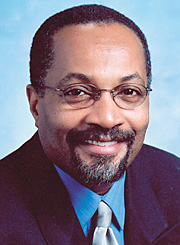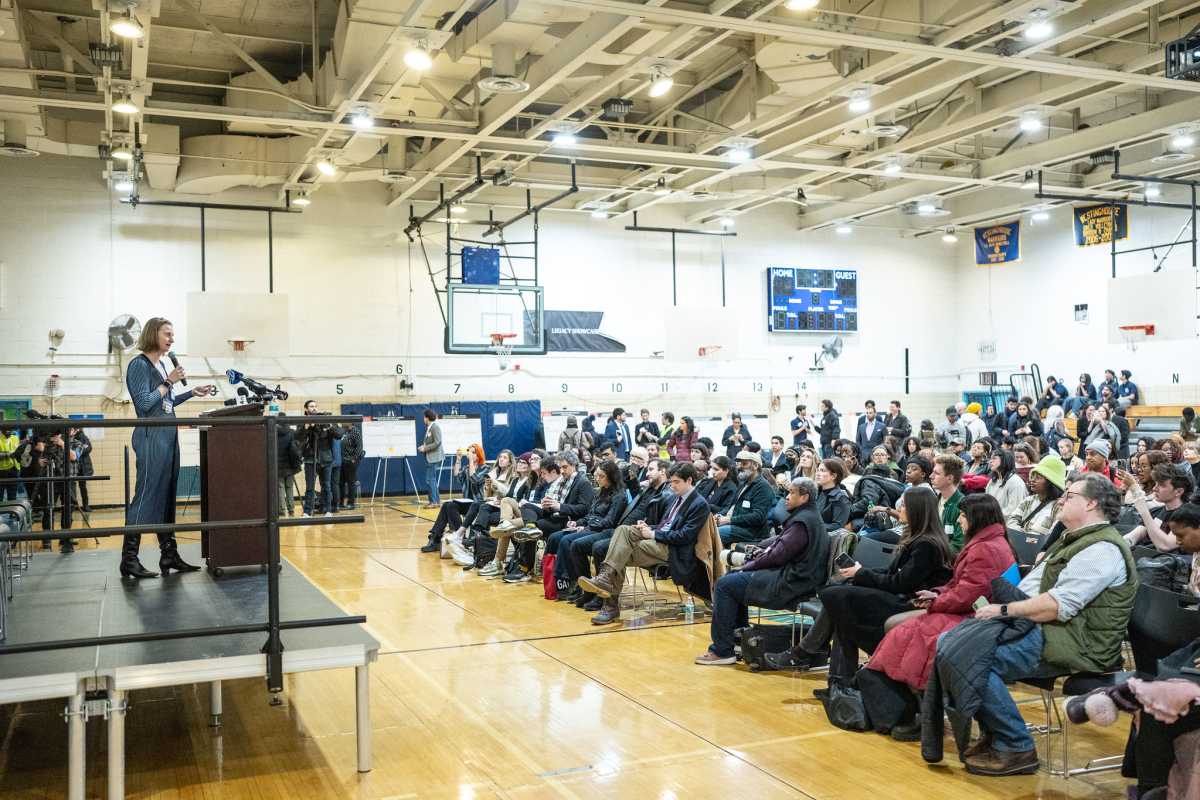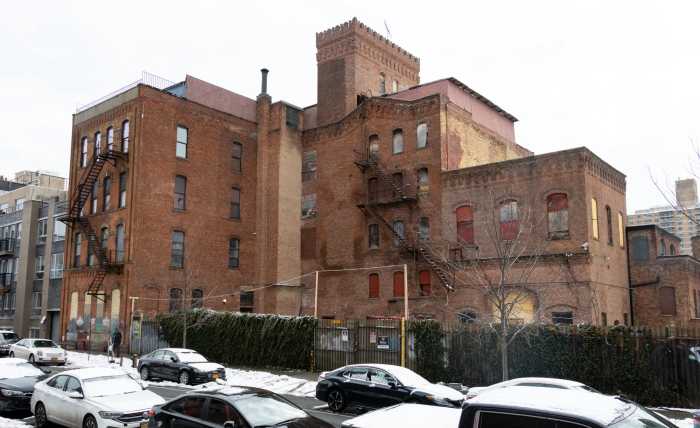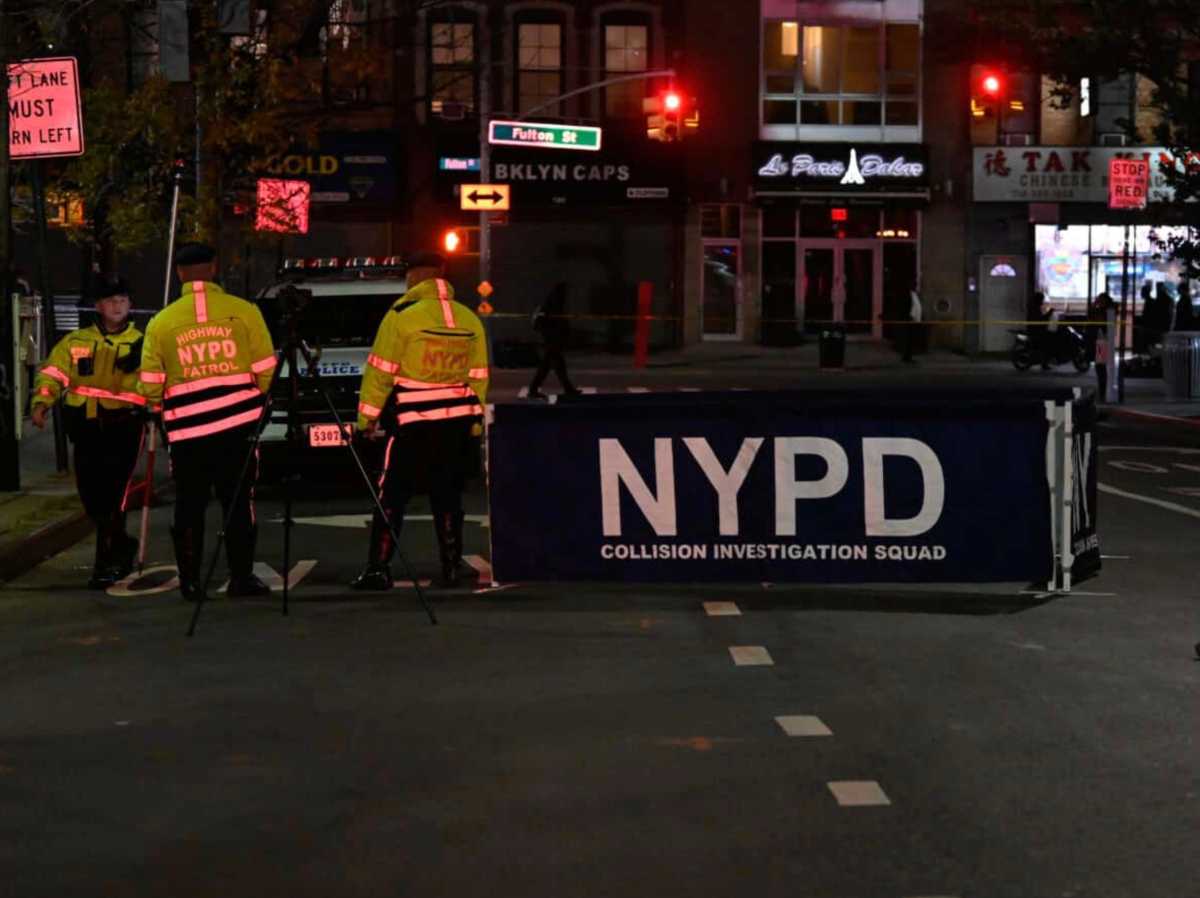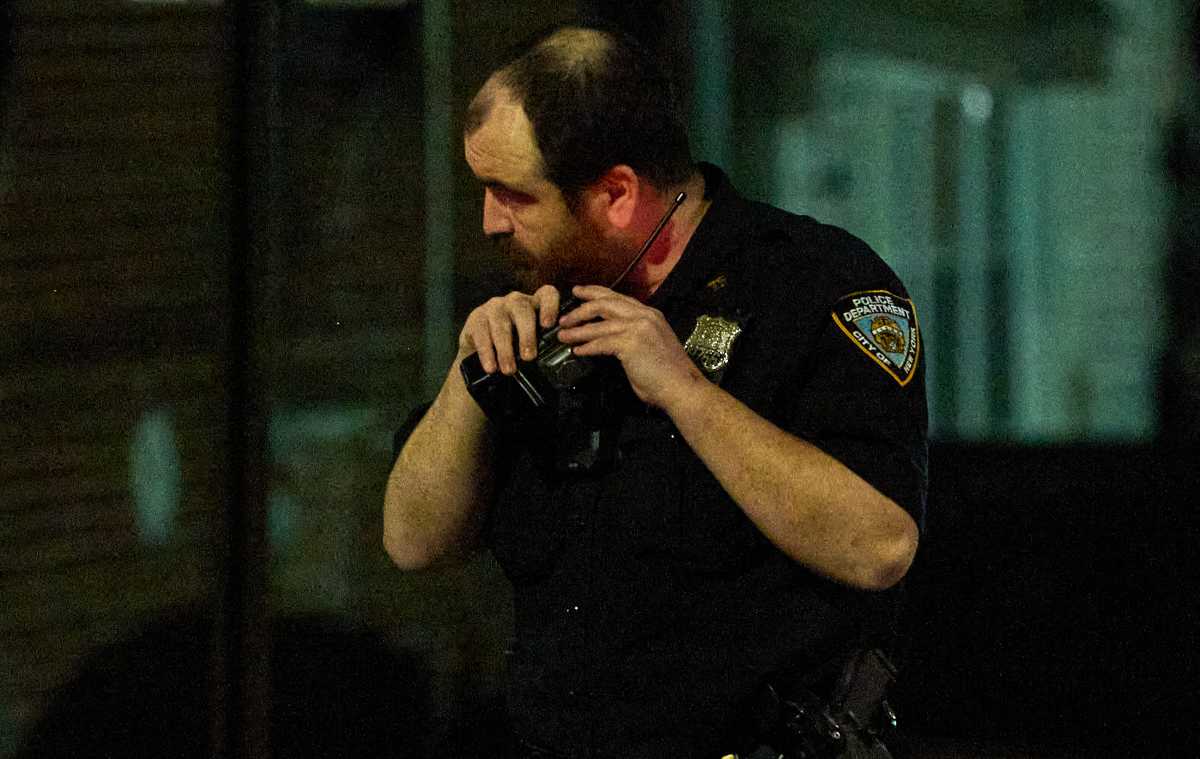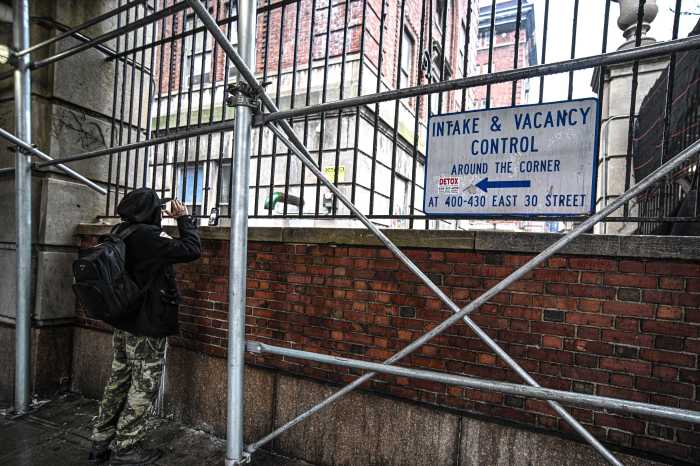Two black supporters of Atlantic Yards have joined a growing chorus saying that developer Bruce Ratner betrayed his black allies when he sold the naming rights to his proposed Nets arena to Barclays, a global banking firm that was founded by slave traders and did business with South Africa’s apartheid government.
Both Roger Green — a former state Assemblyman — and his successor Hakeem Jeffries came out this week against the Barclays deal.
Jeffries said Ratner should consider “terminating” his $400-million deal, the largest-ever sports venue naming-rights agreement.
“It would be an understatement to say that this naming agreement was insensitive and offensive,” said Jeffries (D–Prospect Heights).
“Barclays Bank has gained enormous profits essentially from blood money obtained from the transatlantic slave trade, which is one of the worse crimes in the history of the world. Brooklynites and New Yorkers of every race and religion should be concerned about their presence in our borough.”
Jeffries demanded a meeting with the developer to discuss the issue. He hasn’t gotten a call back yet.
“All options should be on the table, including payment for past wrongs and termination of the agreement,” Jeffries said.
Green, a strong supporter of Atlantic Yards, moved last week to distance himself from the naming-rights deal. He called on Barclays to pay reparations to American blacks for its role in slavery.
“Barclays must step up and respond to our community the way they responded to Nelson Mandela” over the issue of apartheid in South Africa, he said.
As part of the $400-million naming-rights deal, Barclays has said it will pay $2.5 million to repair public basketball courts through the borough, but Green called that amount, “not enough.”
Barclays gave $5 million to a Mandela foundation in 2004. The company also funded local development projects in South Africa, including public sports facilities.
A spokesman for Barclays declined to comment on Green’s call for reparations. The spokesman also disputed the company’s well-documented connection to the slave trade, freezing of some Jewish accounts in France during the Holocaust, and business deals with South Africa’s apartheid government.
At a press conference where the Barclays deal was announced last week, Bloomberg mocked a reporter’s question about the bank’s history. But Green, who was active in the anti-apartheid movement two decades ago, said reports on Barclays’ ties to the slave trade and apartheid amounted to “constructive criticism” of Ratner’s new business partner.
As a result, Green said, he will “ask these companies to respond to our communities.”
The sharp criticism of the Ratner deal is a first for Jeffries and Green — and put them in a coalition with leaders who have taken strong stances against the project.
The attack on Ratner’s naming-rights deal by supporters of the Atlantic Yards project follows criticism by Councilwoman Letitia James, a project opponent, last week.
The Prospect Heights Democrat called Ratner’s deal an “insult” to blacks, whom Ratner used as “tools” to gain approval for his project.
“This deal highlights yet again that the Atlantic Yards project is not about what’s best for Brooklyn,” said James, “but what’s best for Forest City Ratner.”
The company declined repeated requests for comment.
The attacks from Jeffries and Green are stunning, given the support both men have given the developer.
Green was instrumental in helping Ratner identify — and in some cases, create — community groups to sign a “Community Benefits Agreement” that guaranteed jobs, job-training, office space and grants from the developer in exchange for speaking positively about Atlantic Yards.
Green’s call for reparations is a radical one. Some leaders in Brooklyn said this week that it was better to move forward then become bogged down in injustices that ended generations ago.
“Slavery is a stain on western society that we are still reeling from,” said Marie Louis, chief operating officer of BUILD, which is part of Ratner’s CBA. “But if we were to hold the descendants of all those who participated in contempt we would never move forward.”
BUILD operates in an office owned by Ratner and has received tens of thousands of dollars in funding from the developer.


